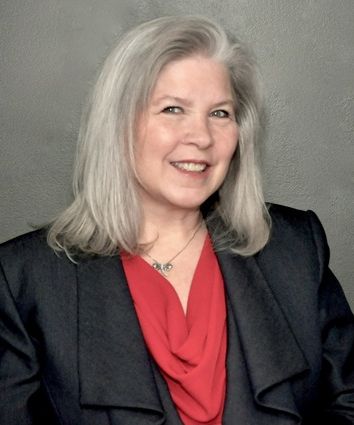
Chief Employment and Culture Officer Shares Seven Steps to Create a Leadership Program
 Atlanta, GA (PRESS RELEASE) Lissa Bowen, Chief People and Culture Officer of Full Course, sees a great opportunity for the restaurant industry to be an agent of change for the development of young people and create the best leaders for the future. Why? Because 90% of restaurant managers in the U.S. started as entry-level employees. Plus, Bowen shares another interesting statistic. “Since the COVID-19 pandemic, the largest growing hourly employee demographic in the restaurant industry is ages 16 to 19,” she says.
Atlanta, GA (PRESS RELEASE) Lissa Bowen, Chief People and Culture Officer of Full Course, sees a great opportunity for the restaurant industry to be an agent of change for the development of young people and create the best leaders for the future. Why? Because 90% of restaurant managers in the U.S. started as entry-level employees. Plus, Bowen shares another interesting statistic. “Since the COVID-19 pandemic, the largest growing hourly employee demographic in the restaurant industry is ages 16 to 19,” she says.
According to Bowen, 76% of Generation Z see career development, mentorship and individualized training as critical to their career advancement. “It’s more important than ever to have a structured mentorship or career development program. Sometimes as an industry, we miss this opportunity because of the urgency of running shifts and because we’re often short-staffed,” she says. Unfortunately, she notes, categorically high turnover rates will continue to plague the industry unless owners/operators act.
“As leaders, it’s up to us to meet people where they are and provide what is important to them,” she adds. “Simply, you need to have a system in place to help interested and high-potential hourly employees prepare to become managers and general managers get ready to become multi-unit managers.”
Creating a structured mentorship/leadership program does not have to be expensive or complex. Bowen suggests these steps to create one.
1. Set SMART goals. SMART is an acronym that stands for Specific, Measurable, Attainable, Relevant and Trackable. Bowen likes the “M” to stand for Motivating because she is a facilitator of SLII (Situational Leadership) from Ken Blanchard, author of the “One Minute Manager.”
“As a mentor, you’re going to set short-term goals for your mentee and then follow up with them to see what progress has been made and what they need to hit those goals,” explains Bowen. “When people learn how to do that early in their careers, they learn accountability, and the statistics show that people who set and achieve goals are promoted more frequently. “
2. Commit to regularly scheduled check-ins. This is about having regular and frequent conversations to create a relationship with the mentee that is meaningful. Ask them, “What are you working on right now? What obstacles can I help you with? What do you need from me?” These one-on-one meetings do not need to be long. They can be 15 minutes, but frequency matters.
“If you only check in with somebody every two or three months, it’s actually demotivating,” adds Bowen. “Also, without having relationship-building regular check-ins, attempting to provide feedback when something goes wrong creates negative and even fearful reactions.”
3. Measure results. Do a survey and ask employees if the mentoring/leadership development program is helping. One question is really all you need: would you recommend this program to a friend or co-worker?
4. Identify career interests and connect to resources. All employees are born with innate interests and passions. It is the manager’s job to help them see where their interests can take them. Once a quarter, managers should talk with employees about what they are looking for in their career development. “This is separate from a one-on-one because it’s not about their current work but more about what they want to learn and do in the future,” she says.
She suggests asking team members these questions: What do you want to learn in the next three months? How will this help you in your career (whether it is in the industry or not)? How can I help you with this goal? Then find ways to tie that career development into their current work. Bowen gives a few examples: a college student who was studying human resources wrote a monthly employee newsletter and updated the employee bulletin board. “I also had a student once who was interested in project management. We signed him up to do a free project management course through edX, and eight weeks later l assigned him a project to run,” says Bowen, “This not only helped him practice his new skills but also helped the business.”
5. Focus on strengths. Bowen urges managers to stop fixating on failure and trying to fix what is wrong with people. “The truth is, you cannot fundamentally change people. The better approach is to focus on somebody’s strengths,” she says. “Find out what they are good at and invest in that area.”
6. Conduct stay interviews. The (shocking) average tenure of a restaurant employee is two months. Exit interviews serve a purpose, but why not regularly conduct stay interviews? Talk to people before they ever leave. Ask them: What keeps you here? Why do you enjoy coming to work? Why do you stay? What do you need?
7. Embrace and appreciate the differences in people. Each employee is unique and brings something special to the table. “That’s what best-in-class companies build into the messaging in all internal and external communications. Managers should express to potential and existing team members that they want them to bring their authentic selves to work every day, to meet them where they are and care about what they care about,” adds Bowen.
There are many resources to help managers identify team member’s true talents and grow employees to positively impact the restaurant industry. Suggesting good books to read such as “Multi Unit Leadership” by Jim Sullivan will help in the transition from single-unit to multi-unit operations. Bowen recommends the Gleam Network, a non-profit organization whose mission is to provide mentorship and leadership development to employees and managers at all levels in the restaurant and food service industry. Full Course also offers many education modules for operators on its website. Check out Full Course’s free e-book, “How to Create a Mentorship/Leadership Program” that you can download from the website’s education section.
About Lissa Bowen
Lissa Bowen is the Chief People and Culture Officer at Full Course, the restaurant and development group that helps restaurants innovate and build their brands. She has been in the restaurant industry for nearly 30 years and has seen the industry’s hiring, retention, talent, people and culture practices change along the way.
About Full Course
Full Course is a restaurant investment and development group that is changing the way that new businesses grow their brands. The company partners with restaurants in the early stages of development and helps them tell their stories by optimizing operations, developing strategies for sustainable growth and connecting owners or chefs with the right investors or franchise partners. Full Course CEO and Owner Lauren Fernandez has spent almost 20 years in the food and beverage industry, first as general counsel and head of franchise administration for a large company with more than 4,000 restaurants in over 15 countries, and then as an operator of a successful restaurant group. Fernandez was recently named to Nation’s Restaurant News Power List. By providing support and expertise to burgeoning restaurant brands on the front end, Full Course is setting up a strong foundation for growth for them and their potential investors, from which they can successfully realize their dreams. Learn more at www.fullcourse.com.